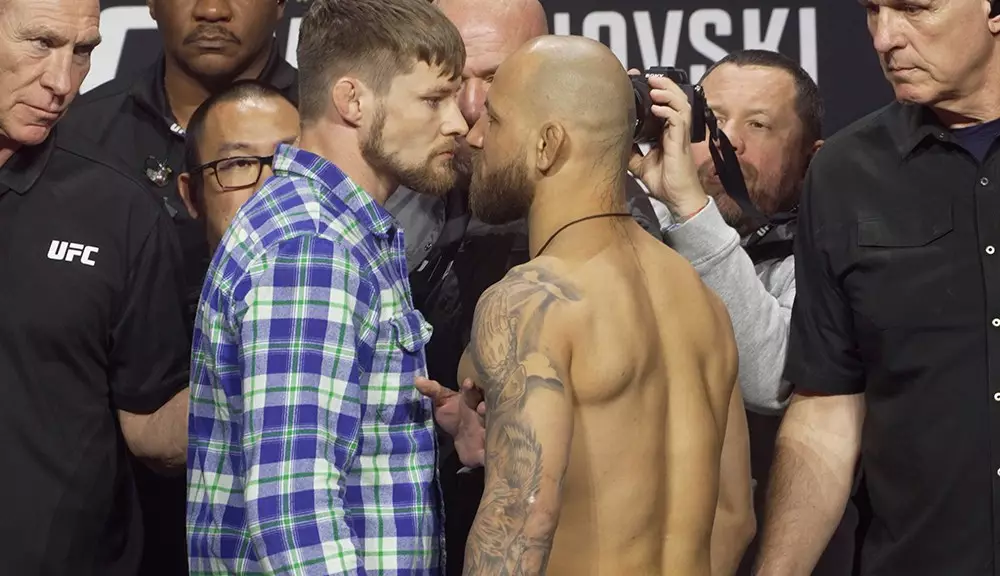Bryce Mitchell, a name that once elicited cheers from fans, now grapples with a complex persona as he approaches his next fight amidst controversy. Scheduled to face the featherweight contender Jean Silva at UFC 314, Mitchell finds himself on a tumultuous journey after igniting public outrage with remarks that seemingly glorified Adolf Hitler. As he prepares for this pivotal clash on April 12 at the Kaseya Center in Miami, the implications of his past words weigh heavily on him—perhaps more than he admits. The sporting world has a curious way of shifting allegiances, and the reaction to Mitchell’s comments demonstrates the delicate balance between athlete charisma and societal accountability.
The Power of Public Perception
During a recent press conference in Las Vegas, Silva masterfully capitalized on the backlash toward Mitchell, rallying the crowd to chant against him. This strategy not only showcased Silva’s emerging confidence but also underlined the fickleness of public opinion in sports. Mitchell’s past as a fan favorite seems to evaporate under the scrutiny of his controversial comments, illustrating the notion that an athlete’s character can often overshadow their talent. This drama within the octagon serves as a reminder of how the narrative surrounding a fighter can morph, making the path to redemption an arduous uphill battle.
Mitchell’s Resilience or a Masked Turmoil?
Despite the mounting pressure and the weight of the uproar, Mitchell claims to be unfazed. His assertion that he remains only focused on defeating Silva reveals a duality in his psyche. On one hand, he conveys an image of mental toughness, portraying his determination to face the challenge ahead. On the other hand, his admission of experiencing troubling dreams and externalizing these as manifestations of “demonic influence” raises questions. Is this genuine insight into his mental state, or is it an attempt to frame the fight in a narrative that allows him to escape personal accountability? The language he employs—referring to Silva as a “heathen”—speaks volumes about his perception of the stakes involved, transforming what should be a straightforward athletic competition into a deeply personal battle laden with moral undertones.
Spiritual Warfare: The Fight Beyond the Octagon
Mitchell’s statements about the spiritual implications of his upcoming fight delve into a realm where sports meet the metaphysical. By framing his encounter with Silva as a struggle of good versus evil, he elevates the stakes beyond mere physical confrontation. This notion opens a fascinating dialogue around the impact of faith and belief systems on professional sports. Fighters often grapple with the emotional and psychological dimensions of their sport; however, Mitchell’s interpretation intertwines his athletic endeavor with his religious convictions, creating an almost cult-like narrative that adds an unusual layer of intensity to his persona.
This intricate blend of sport, controversy, and personal belief may either serve to strengthen his resolve or further alienate him from an already skeptical audience. As he steps into the octagon against Silva, it’s apparent that the implications of their confrontation extend far beyond the fight itself, encompassing elements of identity, belief, and public reception. In a world where the lines between personal beliefs and professional life are ever more blurred, Mitchell stands at a crossroads, fully aware that the outcome of this fight could shape not only his career but also the very fabric of his public identity.

